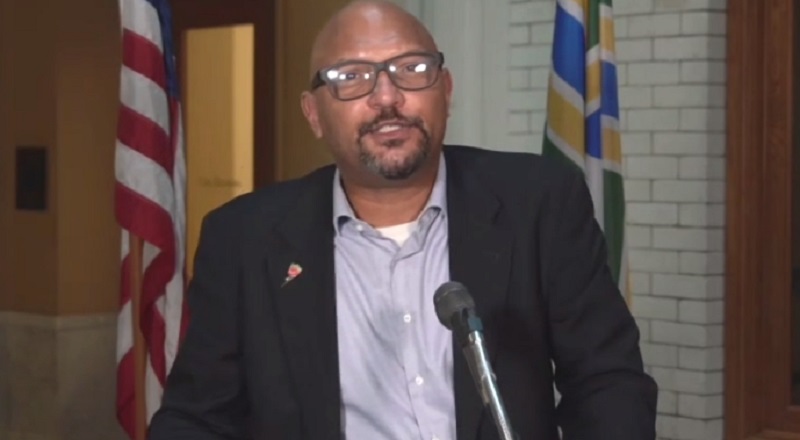PORTLAND, Ore. (KOIN) — On Wednesday, Portland City Council voted on a number of measures related to homelessness, including amending the city’s proposed Shelter to Housing Continuum Project to explicitly prohibit outdoor shelters in natural areas, parks or park parking lots.
Portland’s housing emergency declaration was also voted to be extended for a year until April 4, 2022, which includes operationalizing efficiencies, identifying Council powers and waiving portions of Portland Zoning Code.
“We renewed housing state of emergency due to a looming housing crisis coniciding with the lifting of the statewide eviction moratorium,” Commissioner Dan Ryan said of the council’s unanimous vote.
“Without extending the housing emergency, we could expect tens of thousands of more people to be living on the streets,” Commissioner Jo Ann Hardesty said.
The housing emergency declaration was originally made back in 2015 under then-mayor Charlie Hales.
Shelter housing generated most discussion
The most vocal public discussions centered around the Shelter Housing Continuum Proposal.
The Shelter to Housing Continuum Project would expand shelter and housing options throughout the city by changing zoning codes to allow for more managed homeless camps. This would allow organizations and nonprofits to provide hygiene services, trash collection and wrap-around social services.
The measures include allowing limited temporary shelters in some open spaces and indoor mass shelters.
Outside of a state of emergency, temporarily shelters in natural areas, like parks, would be prohibited, according to the amended provision. In addition, outdoor shelters at park parking lots would also be prohibited.
“Outdoor shelters would not be allowed outside of an emergency declaration, outdoor shelters would not be allowed in parks, because parks are zoned OS so that just removes that entirely, the emergency clause in G above would still allow that through an emergency declaration,” said Eric Engstrom, the principal planner of the Bureau of Planning and Sustainability.
Council voted to amend the Shelter to Housing Continuum project Wednesday, but not on the project in its totality. One item was to amend city code to facilitate more shelter and housing options for Portlanders in need and another was to update city health and sanitation code to facilitate needed amenities at new shelters, like water and property maintenance.
An amendment was also passed to identify surplus city owned land for suitability of creating a transitional shelter, only for plots of land that are not used for a developed park, has existing natural resource value, and does not have a natural hazard risk.

But nearby indoor facilities could still be used.
“If we needed to use a community center that’s attached to parks for shelter, can we do that?” asked Commissioner Mingus Mapps.
“You can,” said Engstrom. “The mass shelter is the indoor form of shelter and that does not have the OS exclusion. So you could continue to use indoor facilities in that way.”
Despite assurances parks and open spaces wouldn’t be used, some people were still worried.
“That reassurance rings hollow if you aren’t willing to translate that into a explicit exemption,” said Patricia Frobes, the former chair of the Portland Parks Board and Parks Advocate. “And the reluctance to do so, I think, creates frankly, distrust about your stated intentions.”
She testified some people wanted commissioners to consider very specific language about the use of those spaces in an emergency.
“I urge you to either amend the declaration to make it clear that open space will not be used for shelter sites during the emergency,” she said, “or amend the zoning code changes, to exempt open space zones from use of shelter sites except in the case of natural disasters or health emergency.”
What’s next
The next items to be brought before Council for the Shelter to Housing Continuum project will be to allow shelters without conditional use up to 20 beds on institutional sites in single dwelling zones and addressing parameters in regard to RV/tiny houses on wheels.
That hearing will occur on April 14 at 2 p.m. Until then, written testimony can be submitted via the Portland Map App website. You can find out more about the Shelter to Housing Continuum Project via its website.